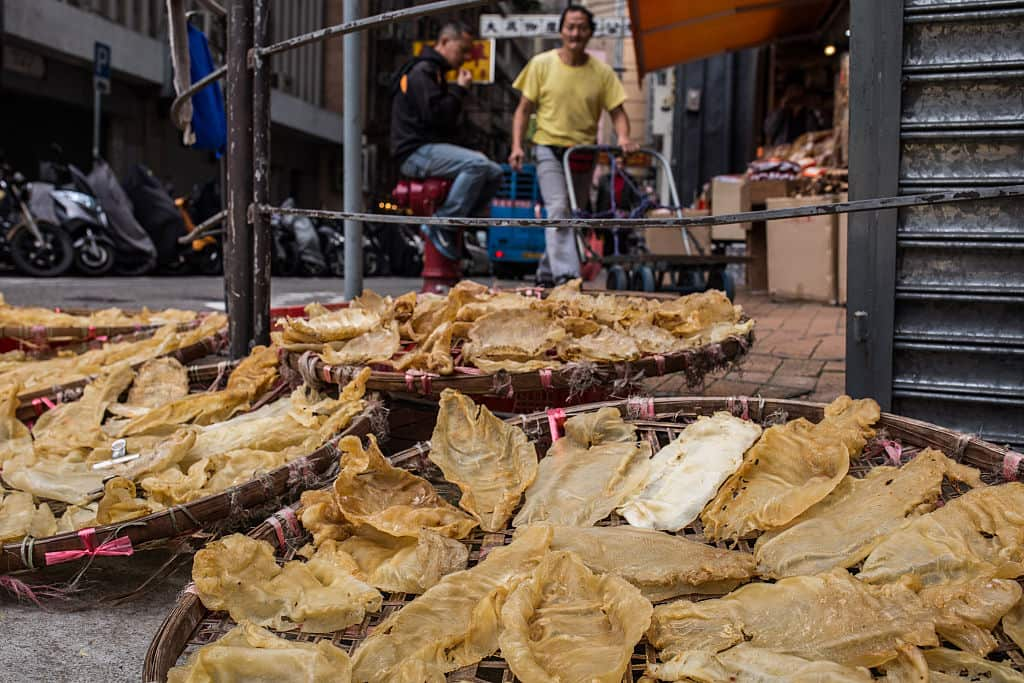In the Gulf of California the population of vaquitas is being driven to the brink of extinction.
The small porpoise, which is similar in appearance to a baby dolphin, is listed as critically endangered by the International Union for Conservation and Nature and is now “the world’s most rare marine mammal” according to WWF.
While the vaquitas themselves are not being hunted, they share their underwater home with a species of fish that are popular for eating in China. The dried swim bladders of the totoaba fish, known as ‘maw’, are served in soup and believed to have medicinal properties to alleviate a number of ailments.
Maw fetches a high price in China as the totoaba is also critically endangered. As a result, the product is often nicknamed ‘money fish’ or ‘aquatic cocaine’, because poachers can earn as much per kilo selling the dried fish bladder as they would with cocaine.
As such, the totoaba attract fishing vessels and vaquitas are often killed as bycatch after getting caught in the large gillnets designed to reel in fish.
This has been a concern for the past two decades during which the population has steadily declined from the 567 vaquitas that were counted in a 1997 survey, to fewer than 60 individuals today.
A report released by the Environmental Investigation Agency last month paints a grim picture for their future, stating that “unless the demand for high-value totoaba maw is addressed… there is little hope for the survival of the vaquita".
It recommends that illegal totoaba trade be halted and that gillnets stop being used in the area where vaquita live, however environmental groups have been pushing for these measures for a number of years with little success.
Vaquitas were discovered as recently as 1950 after the bones of one washed up on a beach, but the first living animal wasn’t seen in the wild until 1985. They aren't known to live anywhere outside of the Gulf of California off the coast of Mexico.

Maw of 'aquatic cocaine' is sold dried in China Source: AFP
Share
Through award winning storytelling, The Feed continues to break new ground with its compelling mix of current affairs, comedy, profiles and investigations. See Different. Know Better. Laugh Harder. Read more about The Feed
Have a story or comment? Contact Us


